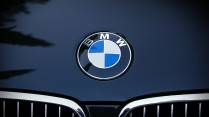Hyundai, Kia Continue Battle With Over $1 Billion Lawsuit
By Dabbie Davis
Nov 20, 2023 04:50 AM EST

In a legal battle that has captured the attention of automotive enthusiasts and financial analysts alike, Honda and Kia find themselves entangled in a high-stakes lawsuit exceeding a staggering $1 billion. U.S. District Judge James Selna, presiding over the case in Santa Ana, California, recently delivered a significant blow to the automakers by rejecting their attempts to dismiss the litigation.
At the heart of this complex legal saga are several hundred insurance companies fervently seeking to recover losses incurred due to a rash of vehicle thefts inspired by social media. This information is according to a report by Reuters.
Fight Goes On
The insurers contend that Honda and Kia owe restitution to the unfortunate drivers whose vehicles fell victim to this social media-inspired theft spree. Judge Selna's decision rebuffed arguments made by the automakers, who claimed that it was unjust to allow insurers to seek compensation when they had already collected premiums and assumed theft risks.
Moreover, the automakers contended that the insurers failed to identify specific drivers who suffered losses. Nevertheless, the judge's ruling underscores the gravity of the situation as Honda and Kia remain firmly ensnared in the $1 billion lawsuit filed by insurance companies seeking justice for the stolen or damaged vehicles.
How It Began
Based on motor1's report, Kia and Hyundai found themselves mired in a legal quagmire that traces its origins to a surge in vehicle thefts during the year 2021. This tumultuous period saw a significant increase in the theft of their vehicles, largely attributed to a critical oversight by the automakers themselves. Alarmingly, millions of cars produced by Kia and Hyundai were lacking of immobilizers, a fundamental theft-prevention device. The situation was intensify as social media platforms became conduits for disseminating instructional videos on how to steal specific car models lacking immobilizers. These videos provided a blueprint for would-be thieves, escalating the theft spree to unprecedented levels and ultimately catalyzing the lawsuit.
READ MORE: Honda Recalls 250,000+ Vehicles, Including Odessey, Over Engine Concerns
Central to the plaintiffs' case was the assertion that it was entirely "reasonably foreseeable" to both Hyundai and Kia that a surge in vehicle thefts would occur, given the absence of the theft-prevention device. The Federal Motor Vehicle Safety Standard 114 served as a critical benchmark in this context, emphasizing that vehicles must be equipped with starting systems that prevent the activation of the car's engine or motor when the key is removed from the vehicle's starting system.
Consequently, the judge acknowledged the validity of this argument, thereby setting the stage for a contentious legal battle between the automakers and the insurance companies seeking redress for their losses.
In a nutshell, the ongoing lawsuit against Kia and Hyundai, the automakers' argument that insurance companies, by insuring their vehicles, implicitly assumed liability for thefts, was decisively rejected by US District Judge James Selna. He emphasized that the $1 billion lawsuit brought by insurance companies against the automakers is founded on allegations related to state consumer protection laws, breaches of implied and expressed warranties, as well as acts of fraud through omission and concealment. Judge Selna's ruling underscored the gravity of these allegations, firmly denying the automakers' attempts to evade responsibility for theft-related losses by invoking insurance coverage as a protective shield against the insurers' claims. In this contentious legal battle, Kia and Hyundai find themselves at the center of a complex and significant lawsuit that continues to captivate attention.
RELATED ARTICLE: Takata, auto execs face Senate over deadly air bag scandal
Copyright @ MOTORTIMES, All rights reserved. Do not reproduce without permission.








